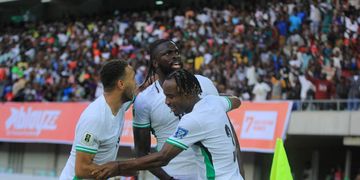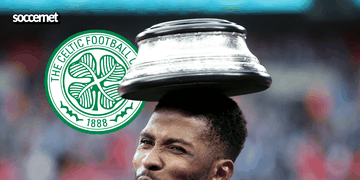By Olusola Akinwale
International football tournaments, wherever and whenever they are played, leave soccer fans with memories to hold, savour and keep like collector’s items. Records are set and histories are made, repeated or consolidated. Victories send nations into wild celebrations while defeats result in gnashing of teeth.
The 32nd African Cup of Nations (Afcon) hadn’t gone without leaving some records – both sweet and sour – in its trail. Here are nine historical connections to the recently concluded African Mundial.
The Afcon is cruel to Aliou Cissé the second time.
We know of the two Africans who won the Afcon as a player and a coach – the late Mahmoud El-Gohary of Egypt and the late Stephen Keshi of Nigeria. Egypt 2019 set a new low for a Senegalese. It left the Terranga Lions’ gaffer Aliou Cissé with a sour taste again.
In 2002, Cissé was a member of the Bruno Metsu-coached Senegal that lost 2-3 on penalties to the Winfried Schäfer-led Indomitable Lions of Cameroon at Stade du 26 Mars in Bamako, Mali.
Seventeen years later, Cissé helped the Terranga Lions to another final but his team lost to the Fennecs of Algeria. As a result, the dreads-wearing Senegalese has become the first African to lose an Afcon final as a player and a coach.
Alloysius Agwu’s double bronze
Nigeria’s Alloy Agwu has become the first African to win the Afcon bronze medal both as a goalkeeper and a goalkeeper coach. Agwu, who plied his trade in the Netherlands with MVV Maastricht, was the Super Eagles first-choice goalkeeper ahead of David Nghodiga and Ike Shorunmu at Senegal’92.
At the tournament, Nigeria beat Cameroon in the losers’ final to claim the bronze medals. In Egypt, twenty-seven years later, the Super Eagles won another bronze with Agwu sitting in the Nigerian dugout as the goalkeeper trainer.
Agwu, who had also been Nigeria’s first goalkeeper at Algiers’90, was a subject of severe criticisms for his poor performance at Senegal’92. It is interesting that his trainee Daniel Akpeyi also received condemnations from Nigerians for his unimpressive show at Egypt 2019.
The outrage that Agwu’s performance in Senegal generated among the Nigerian soccer fans prompted the then Super Eagles handler Clemens Westerhof to look the way of the late Wilfred Agbonavbare who played for Rayo Vallecano in the Segunda División in Spain.
Therefore, when the Super Eagles began the qualifiers for the USA’94 World Cup against the Bafana Bafana of South Africa in October 1992, Agwu had dropped to second-choice goalkeeper. And when the Super Eagles returned to the Afcon seventeen months later in Tunisia, Agwu had become the team’s third goalkeeper.
Emmanuel Amuneke goes the way of the late Stephen Keshi
Emmanuel Amuneke became the second Nigerian to have led another country to an Afcon. He led the Taifa Stars of Tanzania to Egypt in 2019. The late Stephen Keshi was the first to achieve the feat when he led the Sparrowhawks of Togo to the 25th Afcon hosted by the same Egypt in 2006. Amuneke and Keshi shared a few things in common. They both belonged to the Super Eagles class of ’94 that won the Afcon in Tunisia. They both made their Afcon coaching debut in Egypt. Their teams got eliminated in the group stages, having lost all their matches. Both men were relieved of their jobs after the tournaments.
In 2010, Keshi led the Eagles of Mali to the 28th edition of the Afcon in Angola. But he also failed to lead the men from Bamako past the group stage.
Egypt’s bronze offering to Nigeria
Does Egypt have only bronze for Nigeria? When the North Africans hosted the 25th edition of the Afcon in 2006, the Super Eagles won bronze medals. In 2019, the Super Eagles went to Egypt and came back home again with bronze medals. When Egypt hosted the 1991 All-African Games, the Nigeria national under-23 soccer team comprising the like of Andrew Aikhomogbe, Emmanuel Amuneke and Bobo Fela Edom consoled themselves with bronze medals, having lost 0-1 to Cameroon in the semi-finals.
John Obi Mikel begins his Afcon adventure with bronze and ends with bronze
John Obi Mikel of Nigeria made his Afcon debut in Egypt in 2006 as the youngest member of the Super Eagles 23-man squad. Nigeria lost 0-1 to Ivory Coast in the semi-finals then beat Senegal 1-0 in the third-place match to claim the bronze medals. Mikel went to Egypt 2019, which was his Afcon swansong, as the Super Eagles substantive captain. Nigeria lost 1-2 to Algeria in the semis then beat Tunisia 1-0 in the losers’ final, which had the former Chelsea FC midfielder bejewelled with another bronze medal. He had helped Nigeria to win the 29th Afcon hosted by South Africa in 2013.
The Fennecs’ double-double over West African teams
The Les Verts, the Desert Foxes, the Fennecs – these are the nicknames of the Algeria national football team. They came to Egypt 2019 with a single star embossed on their Adidas-supplied kits but left the land of the Pyramid with another star. In 1990, when they won their first Afcon on home soil, the Desert Foxes beat the Super Eagles of Nigeria in the group stage and in the final. In 2019, the Les Verts also defeated the Terranga Lions of Senegal in the group stage and in the final.
Algeria’s 8/24 is a landmark
When Algeria hosted the Afcon in 1990, it was the last eight-team edition of the tournament. They won the African Mundial, beating Nigeria in front of 105,000 spectators at Stade 5 Julliet 1962 in Algiers. It remains a record attendance for an Afcon final. Two years later in Senegal, the Afcon became a 12-team tournament. From South Africa’96 to Gabon 2017, Afcon was a 16-team tourney.
Egypt 2019 was a watershed in the annals of the Confederation of African Football (Caf) biggest competition. It was the first time the tournament had 24 nations battle for the most prestigious football trophy on the continent. When the Cameroonian referee Neant Alioum blew the final whistle at Cairo International Stadium on the night of Friday, 19 July 2019, it was the Algerians that claimed the glory. They became the first country to win the 24-team format.
The Les Verts’s Friday is immaculate in its whiteness
Who says the Football isn’t stuffed with coincidences? Algeria won their first Afcon on home soil on a Friday afternoon. Twenty-nine years later, the Fennecs won their second Afcon on a Friday night. In 1990, Algeria wore their white strip when they beat Nigeria in the final.
In 2019, Algeria also wore their white kit when they triumphed over Senegal in the final. Interestingly, their opponents were in green shirts in the two matches. There is victory in the Les Verts’s immaculate white kit.
One goal before halftime break is enough
A lone goal in the final can earn a team an Afcon glory. This is how it works: Let the team find the back of the net just once and stop its opponent from scoring. Haven’t the Algerians demonstrated that? In their two triumphs, they overcame Nigeria and Senegal by a single goal scored in the first half.
In 1990, it was the 38th-minute goal from Cherif Oudjani. In 2019, it was the 3rd-minute goal from Baghdad Bounedjah. The goals, coming twenty-nine years apart, had sent the Algerians into to an unbridled ecstasy.
Olusola Akinwale is a football historian and an award-winning writer. His works have appeared in Nigerian Monitor, Goal, Soccernet, Tori and elsewhere. He can be tracked on Twitter @olusolaakinwale.






all the time i used to read smaller content which as well clear their motive,
and that is also happening with this paragraph which I am
reading here.